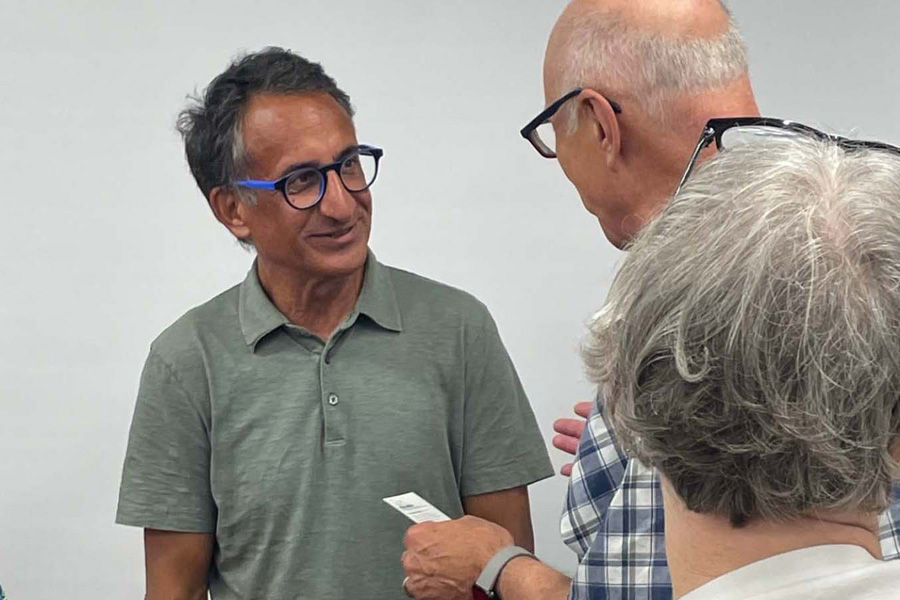Age-Friendly University
Better accessibility for all
October 2017, McMaster became the second Canadian University to join the international Age-Friendly University (AFU) network.

Older Adults and McMaster
McMaster University is a member of the Age-Friendly University Network a global body made up of higher education institutions that are committed to becoming more universally accessible. The AFU network was launched in 2012 by Dublin City University (DCU) in Ireland to assist in addressing the challenges and opportunities associated with the world’s aging population. As a member, McMaster is committed to working towards 10 guiding principles of an age-friendly university.
McMaster has a robust history of building strength in aging research and knowledge mobilization. It currently houses several platforms focused on aging research from multiple perspectives and disciplines. The McMaster Institute for Research on Aging (MIRA) was established in 2016 as a means to better coordinate, facilitate and amplify research in aging across all faculties at McMaster. We are firmly committed to exemplifying the principles of the AFU network within existing platforms and research centres and the University as a whole.
In order to better understand the university’s current age-friendly strengths and programming, MIRA research staff surveyed members of McMaster’s community (staff, faculty members, students, alumni and Hamiltonians). Also, MIRA research staff facilitated focus groups with older adults that included retirees, senior class assistants, program participants, and Hamiltonians. These surveys and focus groups allowed MIRA to identify areas with well-developed programming, research, and activities aligning with the principles of the AFU network, as well as areas that could use further programming to build on its strengths.
The focus groups and surveys that MIRA conducted confirmed that McMaster University has a well-developed research program focused on improving the lives of older adults and keeping people in good health as they age. Survey and focus group participants identified a broad array of programs and activities that older adults outside of McMaster University can participate in, as well as programs that can support McMaster employees as they age and progress through their careers.
Key Areas of Focus
McMaster University aims to focus its efforts on three key areas around AFU principles and continue developing the campus into a welcoming and inclusive space for people of all ages.
Principles
The 10 guiding principles of an Age-Friendly University.
One
Participation
Encourage the participation of older adults in all the core activities of the university, including educational and research programmes.
Two
Career Development
Promote personal and career development in the second half of life and support those who wish to pursue “second careers”.
Three
Education
Recognize the range of educational needs of older adults (from those who were early school-leavers through to those who wish to pursue Master’s or PhD qualifications).
four
Intergenerational Learning
Promote intergenerational learning to facilitate the reciprocal sharing of expertise between learners of all ages.
five
Online Access
Widen access to online educational opportunities for older adults to ensure a diversity of routes to participation.
six
Research
Ensure that the university’s research agenda is informed by the needs of an aging society and promote public discourse on how higher education can better respond to the varied interests and needs of older adults.
seven
Student Understanding
Increase the understanding of students of the longevity dividend and the increasing complexity and richness that aging brings to our society.
eight
Health and Wellness
Enhance access for older adults to the university’s range of health and wellness programmes and its arts and cultural activities.
nine
Retiree Engagement
Engage actively with the university’s own retired community.
ten
Engaging Community Organizations
Ensure regular dialogue with organizations representing the interests of the aging population.